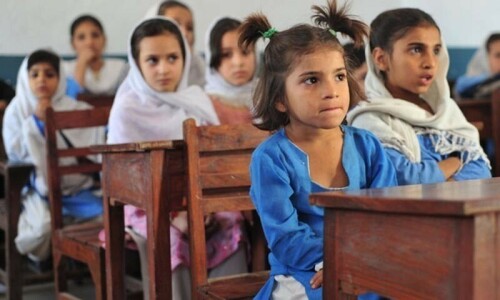Two years after the tragic incident involving a Sri Lankan man accused of blasphemy – who faced a brutal death at the hands of an enraged mob in Sialkot – another distressing chapter unfolded in our national history when an irate mob,driven by blasphemy claims,set fire to churches and wreaked havoc on Christian homes in Jaranwala tehsil of Faisalabad.
The Christian community is grappling with the aftermath of the August 16 incident, particularly poignant as this occurred just days after their National Minority Day and Independence Day celebrations and prayers for their homeland’s safety within these very churches. Now, they seek refuge and safety, having spent the night in open fields and migrating to new places.
I would illuminate two facets concerning these incidents. Firstly, it is vital to acknowledge that none from the minority community would ever contemplate desecrating the Holy Quran. Surprisingly, there is a higher incidence of blasphemy accusations against Muslims than minority members.
Data from a prominent organisation, National Commission for Justice and Peace, working for minority rights, reveals that in Pakistan, a staggering 253 individuals faced blasphemy accusations in 2022. Among them three were Christians, 48 Ahmadis, 196 Muslims, one Hindu, and five unidentified individuals. This sparks a question: how could a Muslim disrespect their holy book? Such acts often arise from personal vendettas.
Mob attack tactics provide safe haven for perpetrators
Secondly, culprits consistently resort to mob attacks rather than individual assaults, exploiting the voids in our legal system. Unraveling this freedom leading to mob attacks exposes the frailty of our system.
Trends and records indicate that justice has never been served in such cases. Whenever a mob attack occurs, the responsibility becomes divided. Although mass-level arrests take place due to mob involvement, instead of singular accountability, accused individuals keep receiving bail one after another, until the case is dismissed on weak legal grounds.
Culprits are well aware of these tactics which is why attacks have been occurring in the same patterns for decades now.
Mob attack tactic provides a safe haven for the perpetrators. Another aspect to consider is that mobs often assemble in response to announcements from mosque loudspeakers. However, the responsibility ultimately falls on the mob, while the instigator manages to escape the scene. Holding the source of the mob accountable would not only discourage such dangerous gatherings in future but also make them more hesitant next time.
Consider the victims – even avoiding casualties, such incidents induce profound trauma. The ferocity of mob attacks embeds lasting fear, ensnaring the accused within their homes. The impact on minors, women and elders subjected to violent slogans cannot be ignored. For minors, the trauma endures, potentially altering their lives permanently. Their path to returning to a normal life involving education, employment and social interaction with Muslims would be incredibly difficult.
Economic losses have devastated their houses, shops and businesses, leaving them with little more than the clothes on their backs and a scarcity of food to sustain them. They are primarily individuals who were already surviving on meager wages, residing in cramped homes shared among as many as 18 relatives. For two generations, they diligently saved to build these modest houses and furnish them with basic necessities. Their life’s earnings, often the result of sacrifices spanning generations, have been wiped out. The pressing question remains: “How can we rebuild our lives here once more?”
Challenges don’t end there. The symbolic white part of the Pakistan flag becomes clouded – a minority voice mourns that this hue now symbolises their coffins.
Writers, intellectuals and lawyers grapple with apprehension, often fearing repercussions for discussing such sensitive topics. Law enforcement’s hesitance to act promptly compounds the issue. Building the capacity of these officials is vital to manage such crises effectively.
Comprising about two per cent of the population, Christians have consistently demonstrated their loyalty to the country since its establishment, engaging in various professions. The non-violent, tolerant, and peaceful conduct of Christians is readily observable within society. Remarkably, there has never been any instance of a Christian being implicated in acts of terrorism, treason or violent conduct. They have been fulfilling their role as responsible citizens effectively; it is now the responsibility of the state to ensure their protection.
The incidence of religion-driven violence in Pakistan has surged ever since the country deemed blasphemy punishable by death, a change that has unfortunately contributed to the escalation of violent behaviours. The escalating occurrences of violence, intolerance and bias targeted at religious and sectarian minority groups urgently demand attention. Religious persecution represents a severe assault on human dignity, entailing profound humiliation and the erosion of human rights.
It is imperative for the government to take decisive actions. Ensuring that no strategies or patterns of attack go unpunished is paramount — whether it’s mob attacks, extrajudicial killings in custody, or incidents occurring outside the courtroom.
The media too has a role, spotlighting incidents and maintaining momentum till justice prevails.
— The writer is a human rights activist
Published in Dawn, August 27th, 2023













































Dear visitor, the comments section is undergoing an overhaul and will return soon.